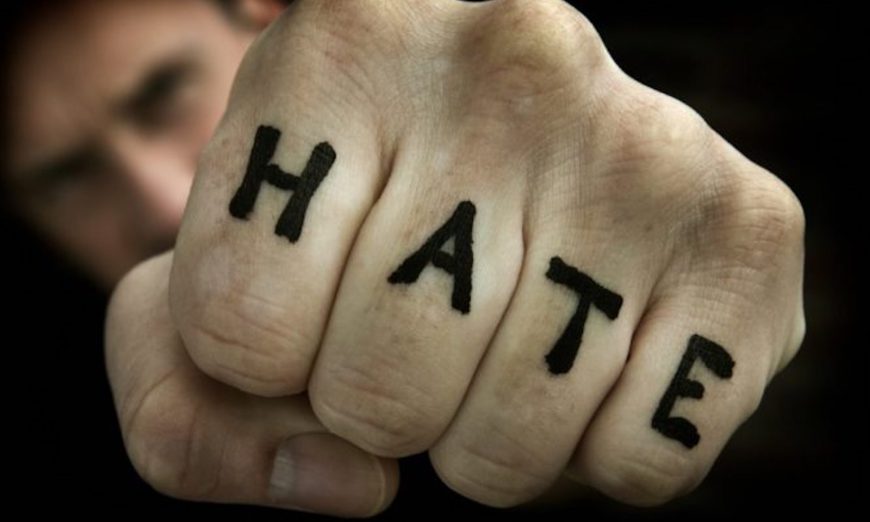13 October 2010
Hakan Ataman, general project director of the Human Rights Agenda Association (HRAA)
With hate crimes increasingly a problem in Turkey, civil society groups are working to highlight the issue in order to draft legislation that will both prevent more crimes and protect its victims.
“Unfortunately, incidents of hate crime are on the rise. They vary from religious and ethnic intolerance to intolerance of differences related to disability and gender,” said Hakan Ataman, general project director of the Human Rights Agenda Association (HRAA) in Ankara.
Mentioning the most publicized examples of such crimes, Ataman cites the killing of Father Andrea Santoro, a Catholic priest who was murdered in Trabzon in 2006; the assassination of Hrant Dink, a Turkish-Armenian journalist shot dead in front of his newspaper, the Agos weekly, in 2007; and the brutal killings of three missionaries in Malatya three months after Dink’s murder.
The perpetrators of these crimes had traits in common: They were mostly under 18 and no older than 19, and they had ties to well-known ultranationalist groups.
Later, a Catholic priest was stabbed in the stomach during a service at a Catholic church in İzmir. In other cities, police successfully prevented attempted murders.
With hate crimes increasingly a problem in Turkey, civil society groups are working to highlight the issue in order to draft legislation that will both prevent more crimes and protect its victims.
“Unfortunately, incidents of hate crime are on the rise. They vary from religious and ethnic intolerance to intolerance of differences related to disability and gender,” said Hakan Ataman, general project director of the Human Rights Agenda Association (HRAA) in Ankara.
Mentioning the most publicized examples of such crimes, Ataman cites the killing of Father Andrea Santoro, a Catholic priest who was murdered in Trabzon in 2006; the assassination of Hrant Dink, a Turkish-Armenian journalist shot dead in front of his newspaper, the Agos weekly, in 2007; and the brutal killings of three missionaries in Malatya three months after Dink’s murder.
The perpetrators of these crimes had traits in common: They were mostly under 18 and no older than 19, and they had ties to well-known ultranationalist groups.
Later, a Catholic priest was stabbed in the stomach during a service at a Catholic church in İzmir. In other cities, police successfully prevented attempted murders.
There have also been attempted lynchings of some groups considered “the other” by some segments of society. “Roma and Kurdish migrants and gays and lesbians have been victims of such crimes,” Ataman said.
He added that no consistent data exist in Turkey regarding hate crimes, which is a fairly new term for the society, and that information on this matter is primarily collected by the Organization for Security and Cooperation in Europe (OSCE) based on incident reports mostly gathered from civil society groups. The partial protection of victims is possible because Article 122 of the Turkish Penal Code (TCK) bans discrimination. Furthermore, other laws introduce protective measures regarding women and the disabled.
“What makes hate crimes distinct is the use of violence against some persons because of prejudice toward their religion, identity, language or gender. We can even add this use of violence because of intolerance shown to others’ worldview and economic and social background. Although the TCK bans discrimination, no legislation specifically deals with hate crimes, which currently have no penalties associated with them,” he said.
This is why the HRAA is working on the legal aspect of the issue. It hopes to get legislation passed to prevent more hate crimes and to protect victims of those crimes. “Without the guarantee of the law, social measures are not enough,” he said, adding that social policies should also not be ignored.
“Social policies include education on the issue and politicians and leaders using careful language,” he said. “In addition to assisting victims, we aim to create awareness on the issue so both the government and other political parties will consider the issue seriously.” Ataman also said that even civil society groups have only recently become aware of the issue. The HRAA is working to bring together nongovernmental organizations, the government and the OSCE in Ankara in November to concentrate on hate crimes and what needs to be done in the legal and social arenas. As a part of its ongoing reform of legislation, the Turkish government is working on drafting anti-discrimination legislation, and human rights groups are working intensely on the issue to have the most comprehensive law passed.
The OSCE defines hate crime as having two elements: A criminal offense must first be committed, and the crime must have been committed with the motive of bias. Hate speech comprises “all forms of expressions which spread, incite, promote or justify racial hatred, xenophobia, anti-Semitism or other forms of hatred based on intolerance,” according to the Council of Europe.
Hate crimes have not been widely studied in Turkey. One recent study in that regard is titled “Hate speech and hate crimes: Wounding words and acts,” completed by the Hrant Dink International Foundation, which organized a conference on the topic on April 9-11.
The study, which looked into 24 newspapers with high circulation figures, found that the most targeted groups were Turkish citizens of Kurdish and Armenian ethnicity. Greeks, Christians in general and Jews were also often the subjects of news stories or columns that contained hate speech. The study considered bad language, defamation, insult, animosity, use of wartime discourse, exaggeration, ascription, distortion and stereotyping while examining the articles.
06 October 2010, Wednesday
YONCA POYRAZ DOĞAN ANKARA/İSTANBUL

